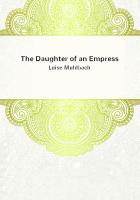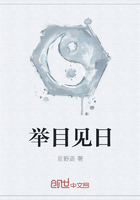As to the poisoning of water and foodthe best explanation of its prohibitionis that it seems to have existed from very earliest timesIt is quite certainthat both Greeks and Romans thought that the poisoning of water and foodwas worthy only of barbariansWhat was the origin of this feelinghas beenasked by writers of modern daysIt may have been that the poisoning of waterand food was thought a peculiarly pailful mode of inflicting deathThe onlypoison of great efficacy which seems to have been known to antiquityandwhich indeed was the base of the subtle poisons employed in the Middle Agesby the Italianswas arsenicwhich no doubt causes death coupled with theextremest painOr it may have been the idea that poison was not fair fighting-and this shows itself as a very strong feeling in very ancient days --that on the whole each combatant ought to have the means of employing hisskill in resistance.
On the subject of the use of poisoned weaponsand weapons calculatedto produce unnecessary pain or injuryone of the chief modern reforms ofthe law of war has been attemptedand with as much success as it was possiblefor it to commandBy the Declaration of StPetersburgproposed by theEmperor Alexander II and signed in 186by all the civilised Powersthecontracting parties agreed to renounce the use by their forces on land orsea of an explosive projectile of a weight below 40grammes -a littlemore than fourteen ounces -charged with fulminating or inflammable matter.
I have heard that this provision in the Declaration of StPetersburg hasno longer its humane effect in consequence of the progress of sciencewhich,I am sorry to sayhas often had the effect of defeating attempts to increasethe area of humanityIt is alleged that the conical bullets which are universalin modern armament do in fact cause pain as severe and wounds as incurableas ever did the explosive bullets which were just coming in about the year1868I am myself incompetent to meet the objectionbut at all events wemust mark that the Declaration of StPetersburgexpressing the opinionof the whole civilised worlddeclares that the object of war is confinedto disabling the enemyand lawful usage does not warrant any state in causinginjuries which give more pain than is necessary for that comparatively humaneobject.
A further universally accepted rule is as follows'Assassination is againstthe customs of warAssassination is the murder by treachery of individualsof the hostile forcesThe essence of the crime is treacheryas a surpriseis always allowableand a small force may penetrate into the enemy's camp,despatch the sentinelstake the general officer prisoner or kill himwithoutinfringing any of the customs of war or subjecting themselvesif taken,to be treated otherwise than as prisoners of warIt is the duty of the enemyto be prepared against a military surprisebut not to guard himself againstthe treacherous attacks of individuals introduced in disguise into the camp.'
Assassination began to be regarded with peculiar horror immediately afterthe ReformationNo doubt it was the murder of William of Orangemore thansuspected of having been prompted by the Spaniardswhich brought about thefierce denunciations of which it is the subjectThere will alwaysof course,be some danger of this crime being resorted to when a waras is sometimesthe caseappears to depend entirely on the life of one individual -a greatstatesman or a great generalThat was the position of William of Orange,in the opinion of all his Catholic enemiesBut it has often been noted thata new feeling had arisen in the interval between the wars of the Reformationand the progress of the greatest war in which this country has ever beenengagedMany writers quote with the strongest approval the action of Mr.
Fox when Foreign SecretaryA promising scheme for the murder of the greatNapoleon was communicated to himand he at once made it known in Paris andinformed the Emperor of the danger which threatened himThe feeling elicitedby this proceeding of the English Foreign Secretary was so strong and hasso little decayedthat I think with the writer of the Manual we may safelylay down that assassination is against the customs of war.
He proceeds'With the exception of the means above stated to be prohibited,any instruments of destructionwhether open or concealedpartial or widespreadin their effectsshells of any weighttorpedoesminesand the likemaylegitimately be employed against any enemyand seeing that the use is legitimate,there is no reason why the officers or soldiers employing them should berefused quarter or be treated in a worse manner than other combatantsAhumane commander willno doubtso far as the exigencies of war admitendeavourto provide that the effect of the explosion of a mine or torpedo should extendto combatants onlybut practically no rule can be laid down on the subject.
The general principle isthat in the mode of carrying on war no greaterharm shall be done to the enemy than necessity requires for the purpose ofbringing him to termsThis principle excludes gratuitous barbaritiesandevery description of cruelty and insult that serves only to exasperate thesufferings or to increase the hatred of the enemy without weakening his strengthor tending to procure his submission.'















